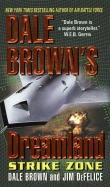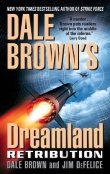
Текст книги "Influx"
Автор книги: Daniel Suarez
Соавторы: Daniel Suarez
Жанр:
Научная фантастика
сообщить о нарушении
Текущая страница: 15 (всего у книги 27 страниц)
CHAPTER 18
Rendezvous
The Twins gave Davis thecreeps. That’s what she’d taken to calling the nearly identical tall, blond, muscle-bound men with thick necks who supervised her on the special task force. They were, in fact, the only members of the task force she’d seen thus far. One was named Todd, the other Jason. In their mid– to late twenties, they nonetheless wielded authority as if they’d been born to it. As if those around them were truly their inferiors—like some FBI version of the Winklevoss twins. And she had never heard of twins working together in the FBI. These guys were clearly jacked in with Washington because they seemed to operate without having to clear things with anyone. Neither did they have budgetary problems. And they’d requisitioned her from the middle of preparations for a major public trial without so much as a peep from her bosses.
She and the Twins were sitting in a suite of windowless offices in Columbia University’s International Affairs Building at the corner of Amsterdam and 118th Street—a ten-story concrete building that seemed to have been modeled on a steam radiator. It was located on the far side of the Morningside campus from where she was supposed to meet Grady. They’d kept a very low profile for the past two days.
As Davis sat, bored, the Twins both talked on cell phones with unseen elements of the task force, finalizing details. Apparently they had people out there somewhere who were ready to back her up on a moment’s notice. Still, the asymmetry in information was alarming. They hadn’t told her a goddamn thing since she’d arrived.
One of the Twins hung up. She could never tell them apart. Even when they reclarified their names, it quickly devolved into a game of “two-card monte” the moment they moved. She cleared her throat and looked at her watch. “So it’s seven thirty now. It’ll take me fifteen minutes to walk there; I need to be briefed.”
Todd—or Jason—looked confused but then nodded. “Right. Agent Davis, we really just need you to go to the meet. You know the route to the Mathematics Library. You’ve seen the floor plan, and you’ve seen the photographs of the table you’re to sit at.”
“Yes, but I was told he was a dangerous suspect.”
Todd nodded. “Okay.” He shrugged. “Then be careful.”
“I don’t know where my backup is. We haven’t gone over radio protocols, emergency signals—”
“Not necessary.”
She threw up her hands in exasperation. “I’d like a little reciprocity. I convinced this Grady guy to come here for a meeting. Now maybe you can tell me how the hell it is he’s still alive, and what that means to the very high-profile criminal prosecution I’m part of. I mean, I charged Richard Cotton with Grady’s murder, and now I’m going to meet Grady. Do you see why I might need to know what’s going on?”
He gave her a blank look. “No.”
“Toss me a bone, Todd. Or Jason.”
“The only thing you need to know is that this is a matter of national security.”
“I’ve been chasing Cotton for years. I need to know how he’s connected to Grady—how he’s really connected to him.”
“It might interest you to know that the SAIC of the Newark office has recommended you for promotion. We can make sure you get transferred to Denver. Is that where Tracy is? Your girlfriend?”
She was taken aback. “How do you know I want to be transferred to Denver? How do you know about Tracy?”
He just stared at her. “Just do your job. Help us capture Mr. Grady without incident, and you’ll be well thought of in high places. And that’s how the world works. Are we clear, Agent Davis?”
She just stared.
“We have the math library wired. And we’ll have eyes on you at all times. Armed agents will be seconds away.”
“But no one undercover in the library itself?”
He shook his head. “Not necessary.”
Another glance at her watch.
“You probably won’t even meet him. We have spotters for blocks in every direction. The moment he appears, we’ll grab him.”
Davis tried to think of any last questions. “And how do I know when it’s over?”
“We’ll call your cell. Then we put you on a plane back to Chicago. You get promoted. And after the trial you get transferred to Denver, to live out your alternative American Dream.” He stared at her expectantly.
She nodded absently.
“Nice working with you.”
• • •
Davis had expected the Columbia University Mathematics Building to have an actual name. A name other than Mathematics Building. But apparently mathematicians weren’t as poetic as all that. Or no one had ponied up the dough for naming rights, and since it was one of the oldest buildings on campus—having been built in the 1890s—it was unlikely anyone would now.
The building was a stately neoclassical four-story redbrick structure accented with granite. Davis had been able to discover that the Mathematics Library was a specialized collection—not part of the main campus library. It was also one of the few libraries on campus without ID check-in. This seemed relevant. Why Grady had chosen this place among all places to meet had preoccupied her and Falwell for quite some time, and this was a likely cause.
While it was true Grady hadn’t attended Columbia, his business partner in Chirality Labs, Bertrand Alcot, had been head of the Columbia physics department for decades—his office not a hundred yards to the north in Pupin Hall. Grady no doubt spent time here on an unofficial basis—he was arrested for trespassing at one point. The charges were dropped, and that was probably due to the friendly intervention of Professor Alcot.
Davis would have done more research, but the Twins didn’t seem to want her thinking any more than necessary.
She glanced at her watch as she approached the building’s main entrance. Seven fifty-four. A few minutes early. She took a few moments to read an oxidized bronze plaque on the side of the building and was surprised to learn that this had been the site of the Battle of Harlem Heights in 1776. A valiant loss for George Washington. She wondered if other countries commemorated their losses.
Edified, Davis entered and headed up the stairs and to the left. The math library was a modest utilitarian space, a long narrow room with desks and study tables running along a wall punctuated by tall, shaded windows that had a good view down onto Broadway. The stacks were toward the back and around the corner, dimly lit, narrow, and crammed, no doubt, with esoteric math tomes. A few computer workstations stood against the back wall, also unoccupied.
The little library didn’t look popular, and early on a Tuesday morning, even less so. It was deserted. Davis could see the desk Grady had mentioned—across from a large gray metal breaker box. The table, like all the others, was unoccupied, and so she sat. A glance to the right and she realized anyone in buildings across the street would be able to see that she’d sat down. There were hundreds of windows across Broadway from which she’d be visible.
Now what?
She looked at her watch. Eight A.M. on the dot. How would he contact her? Would he contact her? Davis gazed around the library but didn’t see anyone—although she could hear a couple of older women (presumably staff) talking around the corner. She had to hand it to the Twins; there was no one within sight of her. She actually did feel like she’d come alone.
Perhaps the task force had already grabbed Grady. How long would it take them to tell her if they had? Given the Twins’ attitude toward subordinates, she guessed quite a while. So she started gazing out the window—making sure her face was visible to anyone watching out there. She shifted restlessly in her chair.
Then she heard a voice from close by.
“Agent Davis. I’m glad you came.”
She snapped a look forward and back but didn’t see anyone around her.
“Down here. The vent near the floor.”
Davis looked down beneath the table, where a Victorian cast-iron grate pierced the wall near the baseboard. She leaned down. “Mr. Grady?”
“Yes.”
She was impressed. “Apparently you know this building well. Is that why you called the meeting here—you didn’t trust me?”
“It’s not you I don’t trust. It’s the BTC. They probably know by now that I’ve contacted you, and they’re probably watching.”
She raised her eyebrows. “How would this BTC know? I haven’t told anyone about you.”
“You ran lab tests. I think they probably have eyes on anything touching the Cotton case.”
“How?”
“Never mind how. I need you to listen to me.”
“I’m listening.”
“Has anything strange happened since Chicago? Has anyone contacted you?”
That gave her pause. In a moment she shook her head. “No.”
“Good, but we still need to be careful.”
“Okay.” She looked around. “Where are you? How do I get to you?”
“We’ll have to assume they’re watching. So once you start—move fast. But listen carefully first: There’s an emergency stairwell door just to your left, next to the breaker box. Do you see it?”
She saw a white metal door with a square fire-rated window in it across the room. “Yes.”
“Go through that door. It’ll set off an alarm. Ignore it. Follow the stairs to the basement. Then go right. At the end of the hall you’ll see a huge steel door with rivets in it—something from a bygone era. It has a red sign on it that says, ‘No Unauthorized Access.’”
“Okay.”
“I left it unlocked for you. Go through it, and I’ll meet you on the other side. Move quickly, Agent Davis. Go now.”
Despite herself Davis was starting to think that some one-on-one time with Grady away from the Twins’ task force was tempting. As crazy as Grady sounded, he was clearly important to folks in Washington, and she needed to know what his real connection was to Cotton. Maybe somebody was taking crazy people and using them to cover up something. But then there was always the chance that this was an ambush arranged by the Winnowers . . .
“Before I do that, I have one question, Mr. Grady . . .”
• • •
Controller Mu-Tau manned a holographic surveillance system in the tactical operations center at the BTC Detroit office. Before him was a holographic projection of the entire Columbia University Mathematics Library, with a miniature Denise Davis leaning forward at a study desk, as though inside a living dollhouse. Invisible audio-video nanoparticles had been sprayed into a network across the walls and ceiling of the room days before, giving him the ability to view every inch of the place in a live feed at submillimeter detail. He had a series of sound equalizers showing dozens of audio sources coming in from every vector.
He spun the image around and spoke through his q-link to the harvester team he was supporting. “Alpha, be advised; Davis is speaking with someone.”
A voice came over the q-link, the metadata for the transmission automatically identifying the speaker—it was Eta-Kappa. “TOC, there’s no one else in the room.”
Mu zoomed in to make Davis grow life-size in front of him. There was still perfect clarity. He spun the image around and saw that she was definitely talking to someone. He brought up the volume.
“Where are you planning on going?”
“Look, now is not the time to have this conversation. Just do what I asked.”
Mu shook his head and spoke into his q-link. “Negative, Alpha, I’m telling you she’s already talking with him.” An alert appeared on his screen. “AI just gave a positive match on Grady’s voice. The target subject is in contact.”
“TOC, we’re scanning every radio frequency. There are a couple of cell phones in the room, a Wi-Fi a few doors down, but no transmissions, encrypted or otherwise.”
Mu flipped the image to infrared and saw only Davis’s heat source. Then he flipped it to ultraviolet. No one hiding with diffraction gear. “I don’t see any invisible objects, but I’m telling you, he’s talking with her. He’s right there. He’s got some advanced tech we don’t know about.”
Mu turned to another holographic display showing a 3D real-time video map of the campus outside the Mathematics Building in miniature, with the locations of all the nearby BTC agents, marked with blue dots, as well as civilians moving about. Eta was tagged in an office on the top floor of the Mathematics Building, along with half a dozen other operators. There were no gaps in the perimeter.
“I’m telling you, he’s there. Jam all wireless communications in a quarter-mile radius, and cordon off the building. Teams Alpha, Charlie, and Echo, move in. Clear every room and maintain a perimeter. No one goes in or out. Nox everyone you come in contact with, and secure both Davis and Grady when you find them. Do you copy?”
“Echo copies, TOC.”
“Alpha copies.”
“Charlie copies.”
“Execute, execute, execute.”
As the blue dots converged on the library, Mu looked to the surveillance hologram. Agent Davis sprang up from the desk and ran to the stairwell door. “Be advised, Davis is leaving the library at speed”—he flipped to the building’s own (much poorer quality) security cameras—“moving down stairwell two.”
“Copy that, TOC.”
• • •
As Davis sprinted down the uneven stone steps, she winced against the piercing emergency door alarms. She kept going down—two floors into the basement. A glance up told her there were cameras, but she ignored them.
She couldn’t hear a thing above the wailing of the fire alarms. She wondered what the Twins would have to say about this. Bad career move. She certainly knew Tracy wouldn’t approve.
Good-bye, Denver.
Through the door, Davis ducked right and started running down a long utility corridor, its floor painted red. Up ahead she couldn’t miss her objective: a truly massive metal door with a “No Unauthorized Access” sign. The thing looked positively Victorian, with massive hinges and rivets.
She sprinted toward it and yanked on the thick metal handle. The door swung open with a groan, and in her rush to enter she almost flung herself down a flight of crude stone steps leading into yet another subbasement. In the nick of time she grabbed onto an iron railing and caught herself.
“Careful.”
She looked up to see Jon Grady standing off to the side, a small rucksack on his back.
“Yeah, thanks for the warning.”
He pulled the door closed, then rammed a dead bolt home with a loud click-clack. “Follow me. We need to keep moving.”
Davis stayed on his heels down steps worn from the passage of many feet and years. At the bottom was a winding corridor lined with more steam and water pipes and electrical conduits, and also cluttered with moving dollies, sawhorses, cardboard boxes for computer equipment and fiberglass insulation, piles of lumber, tarpaulins, electrical cabling—there was stuff everywhere. Twin grooves in the center of the stone floor led off down the corridor, which was lit by bare fluorescent fixtures at intervals.
“What is this place?”
“Steam tunnels. Old. Really old. Those slots in the floor were for coal carts.”
Davis stayed close to Grady. He seemed to know where he was going, and as they rounded a corner, she couldn’t believe how far the next corridor stretched into the distance. “These connect the buildings.”
“Most of them, yeah.”
“How did you know about this?”
“To be honest, I can’t remember. My memory’s blank in spots. But I do seem to know.”
“Alcot. He’s why you came here. You spent time here—but you weren’t a student?”
He shook his head. “I’m not good with structure. I prefer to do things unofficially. But he helped me. Now I want to help him.”
“You’re saying Doctor Alcot is alive, too?”
“I’m hoping so.”
• • •
Two Morrison clones in hockey jerseys and jeans raced through the basement corridors, delta-wave guns at the ready, as the fire alarms wailed. They rounded a corner to see a dozen other Morrisons like themselves, but in various outfits and hairstyles—beards, crew cuts, and ponytails—converging on the same place, in front of the huge steel door.
The fire alarms finally stopped.
They all lowered their weapons as one of them, wearing ratty army surplus pants and a T-shirt, kicked the massive steel door in their path. “Fuck!”
“The rest of the building’s clear.”
The angry Morrison was still kicking the door. “Fuck, fuck, fuck!”
“Eta, we shouldn’t be bunching up like this. The old man would have our asses if he knew how many of us were gathered in public.”
“Fuck off, Rho. They went through this goddamned door.”
Rho stowed his weapon and brought up a hologram. “It’s not even on the tactical plan.”
“Goddamned right it’s not. TOC fucked up again.”
Rho spoke over his q-link. “TOC, we’ve got a steel door blocking pursuit of the target subjects. This door is not on the tactical plan.”
“Copy that, Rho-Sigma. Will advise, please stand by.”
“Advise, my ass. I’m gonna delete the AI asshole that did this to us, I swear to God.”
“We’ve gotta bring this door down.”
Eta turned on him. “Yeah? Tech level four, nonlethal, and you’re gonna bring down a steel gate?” He kicked the door again for good measure. It was like kicking the side of a locomotive.
A voice came over their radios. “TOC to Team Charlie, Team Echo. Redeploy to indicated coordinates.”
Eta ignored the call as the others started to move. Instead, he was rummaging through his cargo pockets.
Rho called back to him. “Eta!”
“I’ll be damned if I’m going back to Dad empty-handed.” He produced a small black cube wrapped in a translucent material.
The others had stopped and were looking on, intrigued.
Rho approached. “Is that what I think it is?”
“Better to beg for forgiveness than ask permission . . .”
“Where the hell did you get that?”
“Never mind where I got it.”
TOC’s voice came over the radio again. “TOC to Team Charlie—”
Eta silenced his q-link..
“You are way off reservation, kemosabe.”
“Stop being such a pussy.” He rubbed the surface of the steel door clean of debris and then pressed the small black cube onto it. The device stuck in place. “We are getting through this door, and we are getting Grady.”
“That’s illicit nanotech. We’re not authorized to—”
“Terminal kinematic mechanosynthesis. I promise it won’t destroy the world.” He shoved Rho back and stared him down. “This mission is not failing. Do you read me?”
The others remained silent.
Eta raised a mass spectrometer wand, scanning the walls with a broad green laser beam.
“Eta—”
“Shut it!”
A hologram appeared above his wrist, listing possible manufacturing options given nearby materials. He looked up from the display and smiled. “Chain golem it is . . .”
He tapped several menus, and the black cube suddenly cast a blinding light as it sank into the steel door—eating through it like fire through paper with a deafening sizzling sound. As it did so, white-hot light wavered menacingly. Ribbons of black material started streaming down from the edges of the expanding burn site. These ribbons then curled back up and started knitting themselves into a series of chain links. Unlike in a regular chain, these seemed not to be looped together. Instead, they regrouped and re-formed magnetically or by some other method not clearly understood by anyone present. The links kept piling up, then coming together to form still larger groups of links that began to move collectively with purpose.
Already most of the steel door was consumed, and the process began to eat into the hinges and frame. Flakes of rust and dirt had fallen free from the reaction, gathering on the floor in a pile.
But by then the kinematic automaton stood, its metal feet clattering on the concrete floor, like a barrel full of chain mail.
Eta pointed through the opening and looked at the chain golem’s face of seething chain links. “Double time. Human target. Hunt acoustically . . .”
• • •
Looking at the extent of the tunnel ahead and behind, Davis thought out loud. “New York division would have known to watch these tunnels.”
He cast a look back at her. “What do you mean?”
“It’s just . . . I’m surprised they don’t have these tunnels guarded.”
“It’s not the FBI. It’s the BTC. They might have better technology, but they don’t always seem to know how to use it.”
“Where are we heading?”
“Subbasement of Pupin Hall—the physics building. That much I do remember.”
“Did you travel down here a lot?”
“It got me into buildings. I think I lived in Pupin Hall’s basement. There was a way into the tunnel system from there.”
They were now coming out into a much more modern utility corridor lined with color-coded foot-wide steam pipes with labels like “Low Press Steam” and “Chilled Water Sup” and arrows showing the direction of flow. Above and below these were orderly bundles of power and data conduits curving around a bend a hundred or more feet ahead.
“Mr. Grady, you need to tell me what’s really going on.”
“I know I sound crazy, but everything I told you in Chicago was true. The BTC exists, and they’re very dangerous.”
“But why would they choose you? No offense, but you don’t exactly have a record of scientific achievement.”
He looked back at her. “They made sure of that. But they knew what I was working on. They have AIs that try to find people who fit a pattern—disruptive innovators. People like me.”
Davis pondered Cotton’s list of undistinguished victims at unknown companies.
“The BTC was created back in the ’60s, and they’ve been hoarding major technological advances for decades. If you knew just how advanced human technology really is, Agent Davis . . . well, you wouldn’t believe me even if I told you.”
He turned right down a branch in the passage. They had to duck under a convergence of pipes. “Watch out for these. They’re hot.”
On the far side she asked, “But why would the BTC cover up new technologies? Money?”
“They don’t need money. Their quantum computers eat the stock market for lunch. No, they think they’re protecting society from disruptions caused by sudden innovations. If somebody somewhere comes up with a technology they think will disrupt the existing order, they grab them. Neutralize them.”
“They actually kidnap them?”
He glanced back at her as they ran. “They made hundreds of clones of this one guy named Morrison—some top Special Forces soldier back in the ’80s.”
“Oh, come on . . .”
“I’m not joking. Keep an eye out for him. I met the original Morrison—he’s sixty or so, but his clones are much younger. Tall blond guys with thick necks. Like ugly Fabios.”
Davis felt a wave of shock pass over her. “Blond guys?”
“Striking specimens. That’s why Cotton’s followers were always masked. There is no antitechnology movement blowing up research labs. The bombings are just the BTC covering their tracks.”
“But we have body parts of victims.”
“You had body parts for me, right?”
She didn’t have a ready explanation.
“They can grow body parts. Replacement organs, teeth—hell, they can clone whole people if time isn’t a factor. They grab people they want, fake their deaths, then offer them a chance to join the BTC.”
“And if someone refuses?”
“They send him or her where they sent me: a prison called Hibernity. It’s somewhere in the Southern Hemisphere. I don’t know where. Very remote. But it’s the reason I contacted you. There are others like me there.”
Grady stopped in the middle of the tunnel and produced a small white plastic device from a chain around his neck. He aimed it at a blank spot in the wall, and suddenly a hyperrealistic holographic image appeared in midair. It showed a balding Indian man in very simple clothes sitting in what looked like a gray circular chamber. Davis was stunned at the image’s clarity—it was as though a three-dimensional sculpture had just materialized from nowhere. She could barely hear the audio amid the steam and exhaust motors in the corridor.
“My name is Archibald Chattopadhyay, nuclear physicist and amateur poet. I have a lovely wife, Amala, who has given me five wonderful children. I led the team that first perfected a sustained fusion reaction, and for this I was imprisoned by the Bureau of Technology Control in April 1985. I am not dead. I live still . . .”
Grady paused the hologram and pointed. “What you’re looking at is a prison cell in Hibernity, and that man, Archie Chattopadhyay, saved my life. And the lives of many other prisoners. He leads a prison group called the Resistors. There are dozens like me—maybe hundreds, and we need to save them.”
Davis pointed at the device. “Can I hold onto that?”
Grady shook his head. “Not yet. Not until we get access to a serious electronics facility. This device has holographic data from many more disappeared prisoners on it—people abducted from all around the world. It runs on DNA-encoded software, so it contains huge amounts of data—including the complete genomic sequence of each of these prisoners to prove they were the ones who made the recording.” But he held it up. “It also has a nanoscale inertial gyroscope that’s been recording my movements since I left the prison. There are instructions in it for parsing that data. And that will make it possible to lead help back to Hibernity. So I’m not letting this thing out of my sight until we get it to a lab.”
Davis gazed at the first physical evidence she’d seen so far. It was a nearly miraculous device—but then, she was never very technological. Was it miraculous? “Why did the BTC take you, Mr. Grady?”
He turned off the device and slipped it back beneath his shirt. “I invented a gravity mirror.”
“That’s a mirror that reflects—”
“Look, it’s not important. What’s important is that I get this data to people who can help rescue those I left behind. These are people whose innovations will literally transform the world, Agent Davis. Fusion energy, a cure for cancer, quantum computers, immortality, and a lot more. You need to help me find them and free them.”
A booming sound echoed in the steam tunnels.
Davis looked behind them.
“I spent three years in solitary confinement at Hibernity with an AI doing experiments on my mind. It was a nightmare I couldn’t wake up from.”
She turned back to him. “But why would they mess with the minds of geniuses?”
“Because if you don’t join the BTC, they consider what’s in your head to be a threat. Hibernity is their research center for creation of a biological supercomputer—some sort of organic quantum machine. They’re trying to create consciousness without free will.”
Davis again was speechless.
“I’m just one person who discovered one thing. The men and women in Hibernity have done so much more than me. You need to help me save them. Their prison needs to be revealed to the world.
Davis was still having difficulty wrapping her head around it all. Or even believing it.
Then another loud boom behind them caused them both to turn around.
A hundred feet back the way they came, Davis could see a nightmare—a seething swarm of metal links pouring itself like black nails over hot pipes and then re-forming again into a ball that rolled with the sound of chains tumbling down a staircase.
She froze for a moment, but Grady grabbed her arm, pulling her along.
“Damnit! We shouldn’t have been standing here!”
“What the hell is that thing?”
“Run!”
“What is it?”
“Chain golem. Nanotech machine. Don’t let it catch you.”
She glanced back at the horror that was gaining on them. A black spiked ball three feet in diameter. “Oh, no kidding!”
Davis drew her Glock 17 and aimed behind her.
“Don’t waste your bullets! They won’t do anything.”
She lowered her gun and kept running. “Why not?”
“It’s thousands of interacting metal links. And the shots will help the Morrisons find us.”
“Goddamnit!” Davis holstered her pistol.
“There’s a fire door up ahead. Move!”
She followed Grady as they raced through what looked like a magnetically controlled fire door. As they passed through the doorway, Grady pulled, drawing it off its magnetic plates. The door slammed shut just as the chain golem smashed into it—deforming it visibly.
As Davis watched, she heard metallic rattling sounds like a ghost in chains—and then a massive booming sound as the door started to buckle further and bend in its frame. She turned to run but saw Grady rummaging through his backpack.
“What the hell are you doing?”
He withdrew a plastic tube into which he poured white powder—like a muzzle-loading musket. “We can’t outrun it down here.”
A glance back showed Davis that the monstrous black machine had smashed open the top half of the door and was busy swarming around it—re-assembling on their side.
She started running but slowed when Grady didn’t follow. “Mr. Grady!”
To Davis’s surprise, Grady tossed the backpack aside and raised the tube to his mouth like a blowgun. The chain golem rose to vaguely humanoid form and stomped heavily toward him.
“Mr. Grady!”
As the chain golem rose to engulf Grady, he blew through the tube and a plume of white powder billowed into it. Almost immediately the machine contracted—and in doing so, the grit jammed even further between its links. It collapsed to the floor and started writhing as if in a seizure. The abrasion made a horrible screeching sound—like a million nails across a million blackboards.
Davis covered her ears as Grady grabbed his rucksack and motioned for her to follow. The deafening screeching continued as she glanced back to see the monster apparently in its death throes.
“What the hell did you do?”
“Diamond powder. Common industrial abrasive.”
“How the hell did you know to do that?”
Grady raised the video device on its chain. “I read the FAQ. Lots of good advice in here. They warned me they might send a golem. Nonlethal weapon for incapacitating high-value targets.”
As they ran down the corridor, the horrific screeching died away.
“That didn’t look nonlethal to me.”
“Do you believe me now?”
She still felt her heart trying to outrun her. Adrenaline had her hands shaking.
“Keep moving.”
Davis had long since lost any sense of direction as they moved through a series of tunnels—some narrow, some clean and modern, others obviously more than a century old and forgotten.
They also came across locked doors several times, but Grady seemed to have a single key that opened them all. When Davis nodded toward it, he shrugged. “Stashed a master key beneath a flagstone years ago. Stole it from a facilities workshop.”
Given that it had probably saved their lives, she couldn’t bring herself to scold him.
Eventually they clambered over a dusty HVAC duct to emerge from the tunnels onto the basement floor of another university building. Here there were long cellars lined with stacks of building materials.








